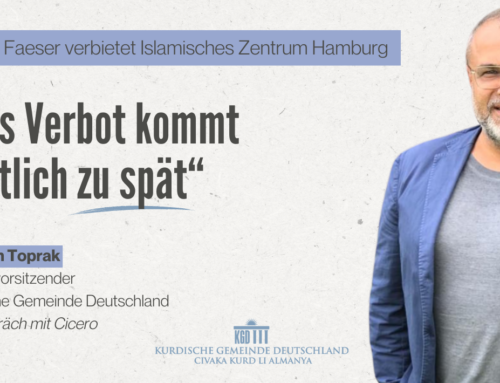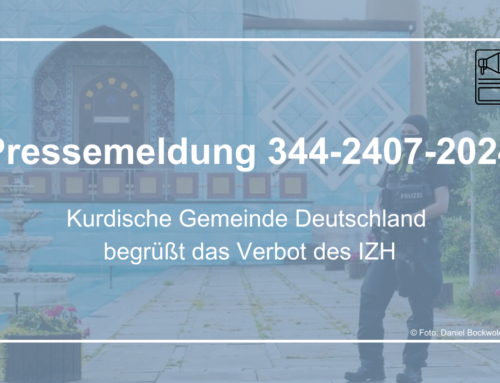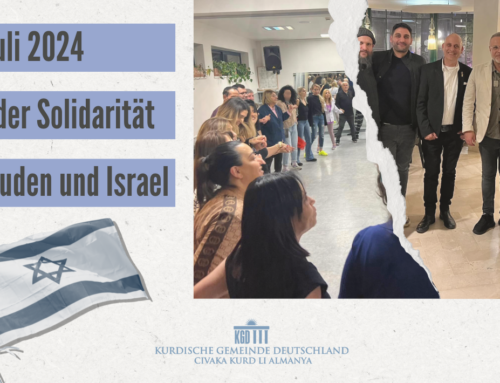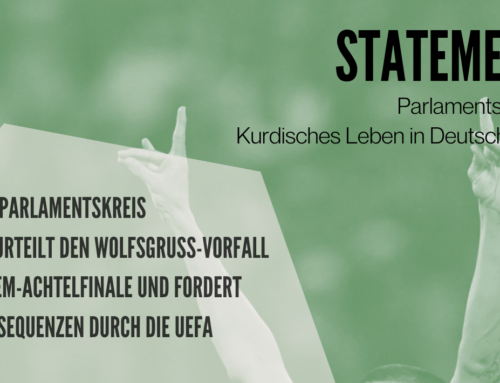Erstens haben die Kurden ihren eigenen Staat moralisch und historisch längst verdient. Das Selbstbestimmungsrecht der Völker wird in ihrem Fall seit Jahrzehnten systematisch negiert. Dabei war ihnen nach Ende des Ersten Weltkrieges und der Aufteilung des Osmanisches Reiches im Vertrag von Sèvres (1920) die staatliche Unabhängigkeit versprochen worden.
Doch es kam nie dazu. Nachdem Mustafa Kemal Atatürk die türkische Republik ausgerufen hatte, wurden die Kurden systematisch unterdrückt. Aber auch in Syrien, Iran und Irak blieben sie über Jahrzehnte ihrer grundlegenden Rechte beraubt und diskriminiert. Das Dauer-Unrecht an den Kurden schwankte zwischen systematischer Benachteiligung und blankem Terror. So verfolgte Saddam Hussein sie grausam, am Ende sogar mit Giftgas-Massenmorden. Allein in Halabdscha kamen mehr als 5000 Menschen um. Hunderte Dörfer wurden zerstört.
In der Türkei wiederum war bis vor einigen Jahren sogar der Gebrauch der kurdischen Sprache verboten. Im bewaffneten Kampf der kurdischen Untergrundorganisation PKK kamen mehr als 35.000 Menschen um. Die Türkei ging später auf die Kurden zu, verbesserte ihre Rechte als Minderheit. Doch erst nach dem Golfkrieg 1991 keimte für die Kurden die Hoffnung auf einen eigenen Staat, nachdem die Uno im Irak nördlich des 36. Breitengrades eine Schutzzone einrichtete. Sie war der Kern einer Autonomieregion mit eigener Regierung und eigenem Parlament. Kurzum: Die Kurden sind ein geprügeltes, geschundenes Volk, das seit Generationen tapfer um das Recht auf den eigenen Staat kämpft. Das Selbstbestimmungsrecht sollte endlich auch für sie gelten.
Der zweite Grund für die Gründung eines Kurdenstaates ist politischer Natur und liegt darin, dass die Staatenordnung im Nahen Osten zerfällt. Weder Syrien noch Irak existieren noch. Beide Staaten sind implodiert und versinken in Dauerbürgerkriegen. Mit jedem Monat wird klarer, dass die Willkürgrenzen der einstigen Kolonialmächte wohl nie wieder stabile Staaten umreißen werden. Das doppelte Machtvakuum von Bagdad und Damaskus ermöglicht es dagegen den radikalislamischen Terrorgruppen erst, sich ungeahnte Bastionen aufzubauen.
Eine neue Grenzziehung steht auf der Agenda
Die Weltöffentlichkeit wird sich also – jenseits der Taktik, wie man den IS-Terror am besten militärisch bekämpft – mit der Strategie beschäftigen müssen, wie die Staatenordnung künftig aussehen soll. Eine neue Grenzziehung steht auf der Agenda und sollte endlich offen diskutiert werden. Was bislang nur Militärstrategen und Diplomaten in Geheimzirkeln abwägen, gehört in offene Verhandlungen um einen politischen Masterplan. Es wird nicht hinreichen, den Kurden Waffen zu liefern, Assad zu boykottieren, Flüchtlinge aufzunehmen und vor den IS-Schergen Angst zu haben. Eine neue Staatsordnung wird zusehends zwingende Notwendigkeit für Frieden und langfristige Stabilität.
Das dritte Argument für einen neuen Kurdenstaat liegt in der Tatsache, dass mit diesem das IS-Terrorkalifat am wirksamsten bekämpft werden kann. Schon jetzt tragen die Kurden die Hauptlast im Frontkampf gegen den IS alleine. Ein eigener, starker Staat würde wie eine Pufferzone zwischen Sunniten und Schiitten, zwischen westlichen und islamischen Interessen fungieren können. Er könnte ein Element für die dringend nötige Stabilität der Chaos-Region werden. Die kurdische Regionalregierung hat in den vergangenen zwei Jahrzehnten bewiesen, dass sie sogar einen demokratisch-pluralistischen Staat gestalten und relativen Wohlstand gewähren kann.
Schon jetzt sind die Kurden eine westlich orientierte Ordnungsmacht, eine Insel der Ordnung im chaotischen Post-Irak. Es ist also im Interesse des Westens, einen stabilen, alliierten Staat mitten im Brennpunkt der Konfliktlinien zu gewinnen. Und zwar einen, der aus autonomer Kultur die staatliche Integrität wahrt, und nicht weil Diktatoren oder Religionsfanatiker einen Kunststaat mit Gewalt erzwingen.
Inzwischen sind auch die Türkei und Iran offener für einen selbständigen Kurdenstaat als vor wenigen Jahren – solange er ihr eigenes Staatsgebiet nicht tangiert. Kurdistan im Nordirak und Nordsyrien könnte auch ihnen als dauerhaftes Bollwerk gegen die Bedrohung durch den IS fungieren. Teheran hat bereits damit begonnen, die ehemals feindlichen Peschmerga-Kämpfer im Nord-Irak zu unterstützen. Die beiden wichtigsten Regionalmächte, die die Kurden über Jahrzehnte hinweg bekämpft haben, würden jedenfalls den neuen Staat nicht mehr unbedingt verhindern.
Fazit: Ein eigenständiger Kurdenstaat ist moralisch fällig, historisch überfällig, politisch möglich und sicherheitsstrategisch nötig. Kurden-Präsident Masud Barzani hat völlig Recht, wenn er dem US-Außenminister John Kerry bei dessen Besuch in Erbil zuruft: „Es ist Zeit für die Kurden, ihre Zukunft selbst zu bestimmen.“ Die Kurden verdienen Unterstützung in ihrem Streben nach Unabhängigkeit. Ihretwegen und unseretwegen.
Die kurdischen Kämpfer im Überblick
-
Peschmerga
Im Irak stellt sich vor allem die Peschmerga den Dschihadisten entgegen, um die kurdische Autonomieregion im Norden zu schützen. Der Name der Armee bedeutet in etwa „Jene, die dem Tod ins Auge sehen“. Die Streitkräfte gingen aus bewaffneten Einheiten insbesondere der Kurdischen Demokratischen Partei (KDP) und der Patriotischen Union Kurdistans (PUK) im Nordirak hervor. Experten gehen von etwa 130.000 bis 200.000 Kämpfern aus. Viele unterstehen der kurdischen Regionalregierung.
-
YPG
In Nordsyrien kämpfen derzeit insbesondere die kurdischen Volksschutzeinheiten (YPG) gegen die IS-Extremisten. Sie sind mit der syrisch-kurdischen Partei der Demokratischen Union (PYD) verbunden und wollen ihre drei „autonomen Kantone“ schützen, die nach dem Rückzug der syrischen Regierungstruppen in den überwiegend von Kurden bewohnten Regionen errichtet wurden.
-
PKK
Volksschutzeinheiten und PYD stehen der kurdischen Arbeiterpartei PKK nahe, die in der Türkei verboten ist und auch in europäischen Ländern und den USA auf der Terrorliste steht. Experten gehen davon aus, dass PKK-Kämpfer die syrischen Kurden unterstützen.
Wolfram Weimer war Chefredakteur der Tageszeitung Die Welt, des Politik-Magazins Cicero und des Focus. Er bezeichnet sich selbst als wertkonservativ.
Op-Ed: Historic Justice: A Kurdish State Now
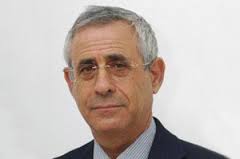
The borders of most of the Arab countries east of the Mediterranean were delineated in the period following WWI, on the ruins of the Ottoman Empire. The borders were fixed on the basis of British and French interests and the ties those two countries had formed with local groups.
Two non-Muslim groups were granted independence: The Jews were given Britain’s pledge – in the form of The Balfour Declaration – that it would help establish a National Home for them, and France granted the Christians dwelling north of Israel the country of Lebanon, as separate from Syria. The Zionist movement was active and visible in the political corridors of Britain, while the French empathized with the fears the Lebanese Christians held of becoming a minority in a country with a Muslim majority.
One ethnic group, the Kurds, was left without a state, and was, instead, divided among four countries: Iraq, Syria, Turkey and Iran. The main reason for this was that the Kurds had no organization representing them on the European scene and no country that interceded for them. The Kurds were the really major sacrificial lamb of the 1916 Sykes-Picot Agreement. In every one of the nations to which they were appended, they are hated, denied their rights, pushed to the sidelines and persecuted. Hundreds of thousands of them have been murdered in struggles against the governments of the countries to which they were parceled out. Israel helped the Kurds in northern Iraq in the early 1970’s.
The Kurd’s problematic status led to their becoming fearless and imbued with a strong sense of national consciousness, so that, for the most part, they are able to overcome tribal loyalties and divisiveness in their midst. A feeling of being under siege and the need to fight constantly for their existence and basic rights has forced them to draft anyone who is able to hold a weapon That is how many Kurdish women were allowed to join the fighting force, in contrast to the Middle Eastern tribal tradition of relegating women to the task of caring for their homes and families.
The Kurd’s situation has worsened radically since Islamic State appeared on the scene in Iraq and Syria several months ago. This cruel terror organization attacks and eliminates anyone who is not a Sunni Muslim, as we all witnessed with regard to the terrible fate that befell the Yazidi tribe: murder, masses dead of starvation, the sale of women as slaves in the market and forced conversion to Islam. Muslim Sunni communities fare no better unless they join Islamic State and their men become members of the organization’s gang of murderers.
Most of the Kurds are Sunni Muslims, but they have not joined “Islamic State”, so they must fight on to keep from being annihilated. The city of Kobane has been at the center of this battle for a month now, and all the sides involved are playing a dirty game with the lives of the Kurds dwelling there. Assad positively enjoys seeing them flee to Turkey, the Turks hate them and would not help them until a few days ago, the West is busy with the Ebola virus and with trying to save Baghdad and Iraq – and only the Iraqi and Turkish Kurds wish to go to Kobane with their weapons in order to come to the aid of their besieged brethren.
The world in general and the countries in proximity to the Kurds in particular have proven to them once again – if any of them was in need of additional proof – that only the Kurds can help the Kurds. Only Kurdish strength, a Kurdish military force and a Kurdish state can guarantee that the Kurdish people will be able to live a normal life, the kind of life a nation that has its own state can lead. This is first and foremost an ethical position, because every nation that has achieved independence for itself is morally bound to stand with the Turks so that they, too, are able to live as a free people in the land they have inhabited for thousands of years. They are not immigrants, they are not invaders, and they will not go anywhere else.
Meetings of exiled Kurds have been taking place lately to come up with ideas for moving towards some level of self government for the Kurds, while looming in the background there is the Turkish threat to squash any trace of Kurdish independence in what was once the land of Syria.
The Kurds in Syria, however, are fully aware of their Iraqi brothers who have had a government, parliament, army, communications and economic system of their own in an independent region for twenty years, with minimal ties to Iraq. Kurdish refugees are travelling worldwide trying to elicit well-deserved financial and public support for their plight. The world – its nations, organizations and citizens – simply must support them.
The world must tell the Kurds: It is time for your redemption. It is time to announce the death of the artificial countries of Syria and Iraq, created in the Sykes-Picot Agreement; it is time to re-arrange the Middle East in accordance with the interests of its own peoples, not those of Britain and France.
Colonialism disappeared seventy years ago, and the time has come to erase that colonialist heritage – that is, the borders of Syria and Iraq. What happened to Yugoslavia, Czechoslovakia and the USSR is the model for redesigning the Middle East. All three came apart on ethnic lines and most are now developing, tranquil and legitimate modern states. Ukraine is doing the same thing right now. This is a natural process in a world where ethnic origins are of great significance to most of the public, where groups are willing to wage war with one another due to differences in language, culture and tradition.
As far as this is concerned, the Middle East is no different from Europe. Here, too, loyalty to traditional frameworks – tribe, people, religion and sect – are stronger than loyalty to a modern state. That is why the post WWI nations, especially Syria and Iraq, failed in the main goal of a state: to find a place in the hearts of their citizens, to create an Iraqi and Syrian national ethos, to exchange the traditional loyalty and identity with that of modern statehood. That is why the Kurds are still defined as Kurds – by their neighbors as well as by themselves – and not as Syrians, Iraqis, Turks or Iranians.
The West and particularly Israel, must take a moral stance – which also happens to be a realistic stance – and support, both in word and deed, the legitimate rights of the Kurds to full independence and to a state like all the other peoples of the world. That is the only way to free them from decades of suffering brought on by long-extinct colonial interests. All those nations so eager to recognize a “Palestinian people”, a fictitious “people” whose existence was unknown before the 1970’s, a “people” without its own language, culture, ethnicity or territory – let’s hear them for the Kurds. The Kurds are a real nation, much more deserving of recognition and rights than the virtual Palestinian “people”.
Turkey will not be pleased with international recognition of Kurdish rights. The Turks massacre the Kurds mercilessly; in the last thirty years alone, the Turkish army murdered tens of thousands of Kurds in Turkey and Iraq. The world – from an ethical point of view – must tell the Turks that “enough is enough, the time has come for you to recognize the legitimate rights of the persecuted and oppressed group for whose suffering you bear a good deal of responsibility.”
The Arab government of Iraq will make some noises about not wanting a Kurdish state taking oil and territory from Iraq. But if and when a Kurdish state is established, a good many Iraqi Arabs will breathe a sigh of relief. Assad’s heart will also rejoice once the world liberates him from the Kurds – and the Iranians, who have a small number of Kurds in their country, will begin to worry that their Kurds will also want to separate from the country that rules them only because of the British.
If the Iranian Kurds continue their efforts to have an independent state and begin to fight for it, they might inspire other minorities who live in Iran to demand ethnic rights and even the legitimate right to become a separate entity. This scenario is just as possible in Iran as it is in Iraq, Syria and Turkey and might lead to an Iranian civil war and collapse, another possible positive outcome of a Kurdish state in Syria.
No less a positive outcome would be felt in dealing with Islamic State. The Kurds are proving that they are just about the only force in the region that is steadfastly battling Islamic State. Other countries – Turkey and Iran – have not rushed to send their soldiers to the battlefield, and might never do so. The West and several Arab nations are limiting their involvement to air power, which cannot destroy Islamic State. If ground forces that can search each house, basement, apartment and ditch do not join the war, Islamic State will not be defeated. In that case, Islamic State will probably be around for a good number of years and the world will accept its existence as a fact.
Is the acceptance of the right of the Kurds to independence as a fact less probable than that of Islamic State? In a situation where the Middle East is collapsing, it is imperative to begin the process of building alternatives to its failed states. A Kurdish state could well be a new and well ordered beginning for the modern history of the Middle East, with a better chance of succeeding than the one that followed WWI and failed in most instances. A Kurdish state will be the “coming thing” in the region and open the Middle East “Spring of Nations”, 166 years after a similar “Spring” began in Europe.
Written for Arutz Sheva, translated by Rochel Sylvetsky
Quelle: http://www.israelnationalnews.com/Articles/Article.aspx/15848#.VFbgFb6AMVc



